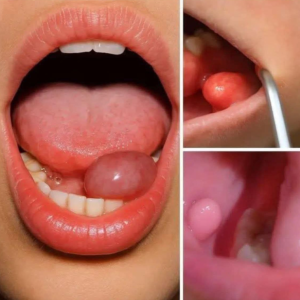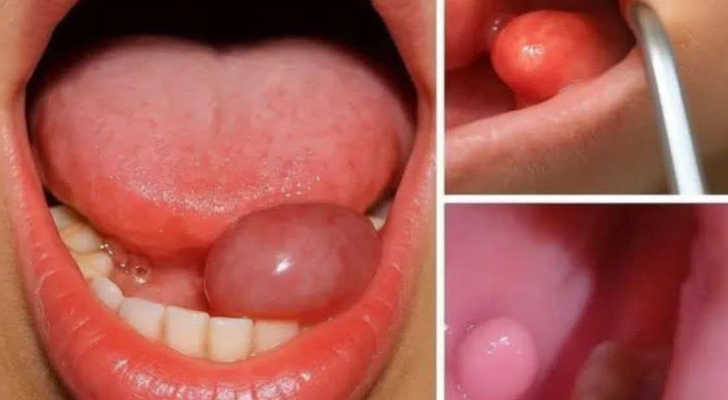Beneath the Tongue: A Story of What We Don’t Say
There are places in the body that rarely see the light. The underside of the tongue, the floor of the mouth—these are quiet spaces, tucked away, soft and vulnerable. When something swells there, it’s not just a medical anomaly. It’s a whisper from the body, a signal that something beneath the surface has been blocked, trapped, waiting.
Sophea first noticed the swelling on a Tuesday morning. She was brushing her teeth when her tongue caught on something tender, bulbous. A translucent sac had formed beneath it, like a tear that hadn’t fallen. She stared at it in the mirror, unsure whether to be alarmed or ashamed. It didn’t hurt, not exactly. But it felt like something was trying to speak.
She didn’t tell anyone. Not her mother, who had enough to worry about. Not her sister, who would only tease. Sophea had learned long ago that some things were better left unsaid. Like the way her father used to disappear for days. Or the way her brother’s name was never spoken after the accident. Silence had become a kind of inheritance.
But the swelling grew.
It pulsed when she ate. It throbbed when she cried. It became a companion, a secret she carried in her mouth. And with it came memories—unbidden, unrelenting.
She remembered the day her brother died. The way the air felt too still, too heavy. The way her mother collapsed onto the floor, soundless. The way Sophea stood in the doorway, unable to move, unable to scream. She had swallowed her grief whole, like a stone. And now, years later, it was surfacing.
The doctor called it a ranula. A mucous cyst caused by a blocked salivary gland. Benign, he said. Common. Easily removed. But Sophea wasn’t convinced it was so simple.
She asked him what caused it.
“Trauma,” he said. “Sometimes physical. Sometimes emotional.”
Sophea nodded. Of course. Her body had remembered what her mind tried to forget.
She scheduled the surgery but postponed it twice. Not out of fear, but out of reverence. The cyst had become a symbol, a vessel. It held everything she hadn’t said. The apologies. The regrets. The longing. To remove it felt like erasing a part of herself.
So she began to speak.
Not loudly. Not all at once. But in small, deliberate ways.
She told her mother she missed her brother. She told her sister she was tired of pretending. She told herself that grief wasn’t a weakness—it was a wound that deserved tending.
And slowly, the swelling began to shrink.
Not because of medicine. Not because of time. But because of truth.
Sophea learned that the body is a storyteller. It holds our secrets in tissue and tendon. It remembers the things we bury. And sometimes, it demands to be heard.
She kept the photo the doctor had taken—the close-up of her mouth, the cyst glistening like a pearl. Not as a warning, but as a reminder. That healing begins when we honor what hurts.
Years later, she would show the photo to her daughter.
“This,” she’d say, “is what silence looks like.”
And her daughter, wide-eyed and curious, would ask, “What did it feel like?”
Sophea would smile, tracing the memory with her tongue.
“Like something waiting to be spoken.”



